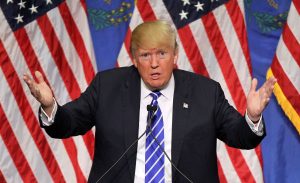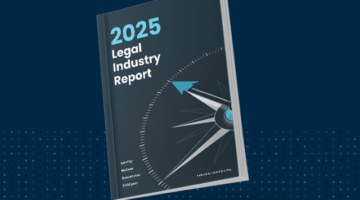
(Photo by Isaac Brekken/Getty)
A month ago, the House Ways and Means Committee released former president Donald Trump’s personal and business tax returns for the years 2015 to 2020. This was after years of Trump, his lawyers, and his Treasury Secretary refusing the committee’s requests. They claimed there was no genuine legislative purpose for them and would instead be used to politically damage Trump in his re-election campaign.
Experts who have reviewed the returns speculated about possible red flags that should be examined further, but no one has explicitly claimed that Trump’s tax returns are fraudulent. At least not yet.

2025 Legal Industry Report: Key Insights for Law Firm Growth & Efficiency
Is your firm keeping up with legal finance and tech trends? The 2025 Legal Industry Report shows how firms optimize cash flow, automate payments, and use AI. Download now for key insights.
So what will this public disclosure mean for Trump, future presidential candidates, and politics in general? And what can be learned from it?
One question is whether the public disclosure was actually legal. While legal experts seem to agree that Congress can legally disclose tax returns to the public under specific conditions, the relevant statute (Section 6103(f)) does not expressly say so. They rely on the provision where it states that the House Ways and Means Committee, Senate Finance Committee, or the Joint Committee on Taxation is allowed to disclose tax returns to the full House or Senate. Apparently, the authority for congressional tax committees to disclose tax returns to both houses of Congress is equivalent to public disclosure. And assuming releasing the returns is illegal, how can the committee members be punished, if at all? The law should be changed to explicitly state under what conditions an individual’s tax returns can be made public.
The disclosure may deter the superwealthy from running for public office if it means making their tax returns public. Trump was not the first presidential candidate to refuse to release his returns. Former Republican presidential candidate Mitt Romney was also unwilling to release his tax returns during his campaign but later relented. His tax returns showed that he made $43 million in two years. Wealthy business owners would not like the idea of releasing their tax returns as it may give impressions to consumers who may have concerns about using their money to make a wealthy person wealthier. While financial transparency is important, a person’s massive income can be used by opponents to project an image that he or she is out of touch with working-class Americans.
Will there be backlash for releasing Trumps returns? Trump spokesman Steven Cheung stated that the release of Trump’s tax returns is unprecedented and that the government should also seek the tax returns of former House speaker Nancy Pelosi. He also said that if this happens to Trump, it can happen to all Americans without cause. He might be correct. Republicans will likely demand tax returns of political enemies as revenge.

Private Practice Lawyers: Rater Your Work With In-House Counsel
Please share your thoughts in this brief and anonymous survey.
Another argument for releasing tax returns is that it will open discussion for tax reform. The committee found that Trump’s tax returns for the years during his presidency were not audited by the IRS even though the Internal Revenue Manual states that the president and vice president’s returns are subject to mandatory review.
But lawmakers might publicize tax returns to justify tax increases or eliminate popular tax deductions. Lawmakers may publicize tax returns to show how some wealthy people are legally taking advantage of the tax code. For example, a primary reason for Trump not paying much in federal taxes is because he suffered massive real estate losses that offset his taxable income. His tax returns can be used to start a discussion about limiting the use of net operating losses to offset past or future income.
So will this be the end of the matter? Considering that Trump intends to run again in 2024, his tax returns can come back to haunt him and may even result in criminal tax fraud charges during his campaign. Also, the fact that the Trump Organization and its CFO has been found guilty of tax evasion could result in auditors and experts looking at the return with a very skeptical eye.
It appears that presidents’ or presidential candidates’ tax returns will eventually become public whether they like it or not. Trump is a man who cares a great deal about his public image and was probably worried that people will point out his massive real estate losses. But by not releasing his returns he has understandably gave the impression that he has something to hide and has invited extra scrutiny by opponents.
However, it remains to be seen whether Republicans will try to publicize private tax returns as payback. But if political parties release tax returns for political purposes, it will slowly but surely erode the public’s trust in the tax system.
Steven Chung is a tax attorney in Los Angeles, California. He helps people with basic tax planning and resolve tax disputes. He is also sympathetic to people with large student loans. He can be reached via email at [email protected]. Or you can connect with him on Twitter (@stevenchung) and connect with him on LinkedIn.